It’s time to reject the Tarmac Budget and push for a Green New Deal
The Budget was staggering in its obsession with the motor industry – at this time of coronavirus crisis, it's time to tell the government to stop

After 18 months of youth climate strikes and 3,000 Extinction Rebellion arrests, climate activists had demanded an emergency spring Budget. The UN secretary-general has warned that 2020 is the last opportunity to make the radical cuts to carbon emissions we need to in order to avert climate catastrophe – making this our penultimate budgetary chance to do so.
For the first time in a generation, we did get our emergency Budget – but not a climate budget, but rather a Tarmac Budget. The chancellor said as much himself: “Today, I’m announcing the biggest ever investment in strategic roads and motorway – over £27bn of tarmac.” Around 6,500km of new roads will be built, proclaimed the chancellor, including those to facilitate the planned expansion of airports all over the UK.
Aside from the coronavirus measures, the Budget was staggering in its obsession with the motor industry, with the UK’s democracy now better described as a motocracy. Despite a massive new parliamentary majority, an equally massive fall in oil prices. the thousands dying from vehicular pollution, transport being the largest single source of the UK’s carbon emissions, the chancellor literally saying in his budget speech: “I have heard representations that after nine years of being frozen, at a cost of £110bn to the taxpayer, we can no longer afford to freeze fuel duty. I’m certainly mindful of the fiscal cost and the environmental impacts.”
He went on to announce another £2.5bn cut in fuel duties during this parliament. Nor did it end there. The chancellor proceeded to reel off a litany of giveaways for the motor industry: £2.5bn for doubling road-maintenance, aka pot-hole filling; £500m for new charging points for electric vehicles (EVs) – which, it should be remembered, are not zero-carbon but over their lifetime, equate currently to only a 17 per cent to 30 per cent cut in emissions; £500m for EV grants for drivers; £125m cut in Vehicle Excise Duty for motorhome owners; £100m cut for company car taxes and a £120m cut for expensive EV car supplement taxes, despite their staggering embedded carbon footprints
And what did clean, healthy, zero-carbon cycling infrastructure get? Three small towns got a new cycleway each, a new walking and cycling bridge for Plymouth, and Nottingham got a risible £10m cycleway grant.
But not wanting the fastest-growing source of UK carbon emissions to feel left out, the chancellor also announced a cut in air passenger duty for short-haul flights, which account for 80 per cent of UK flights, with a consultation to cut it by a further 50 per cent next year. The chancellor made no changes to the billions of subsidies to the North Sea oil industry and he kept the taxes imposed by previous Tory chancellors on solar panel installations and renewable electricity bills.
The Budget did include a few token green fig leaves. Most notably the announcement that 30,000 hectares of new forest will be planted over the next five years. This is a fraction of the up to 50,000 hectares the government’s own Climate Change Committee says we should be planting every year, if we are to get to net-zero carbon by 2050.
And the £130m a year being spent on this is about the same as the duty cuts on motorhomes for five years, which gives you a sense of the lack of urgency being given.
And of course, the chancellor made no reference to the yet more precious remaining scraps of ancient woodlands and wildlife sites that will be destroyed by the 6,500km of new roads he is to build. Other green fig leaves included a small rise in the climate levy on business gas, a new 2 per cent levy on bulk plastic wrapping (if you are importing or making more than £10m worth!) and a rise in red diesel fuel duties for some users, but this announcement was littered with loopholes for agriculture, heating, railways and fisheries. The Tarmac Budget brings home the painful reality that elections count. Friends of the Earth rated the Tory Manifesto as 5.5 out of 45 for climate friendliness; all of the other main opposition parties rated in the low 30s.
Rishi Sunak declared that this was a Budget where “we come together in the national interest” and to “protect our country and people”. Sadly, this was a Budget that again protected the motor lobby, not the national interest.
In the light of the accelerating coronavirus crisis and accompanying economic emergency, it is crucial that we avoid a disastrous dirty-brown bailout, adding to the disaster of the Tarmac Budget, and press our government for a Green New Deal instead.


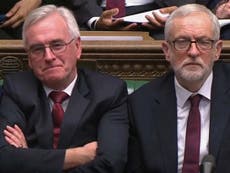
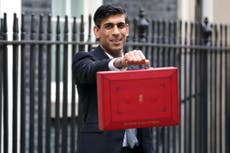

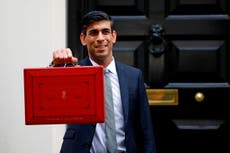
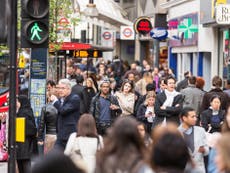


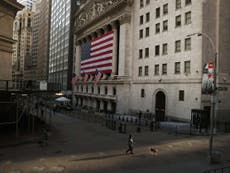

Join our commenting forum
Join thought-provoking conversations, follow other Independent readers and see their replies